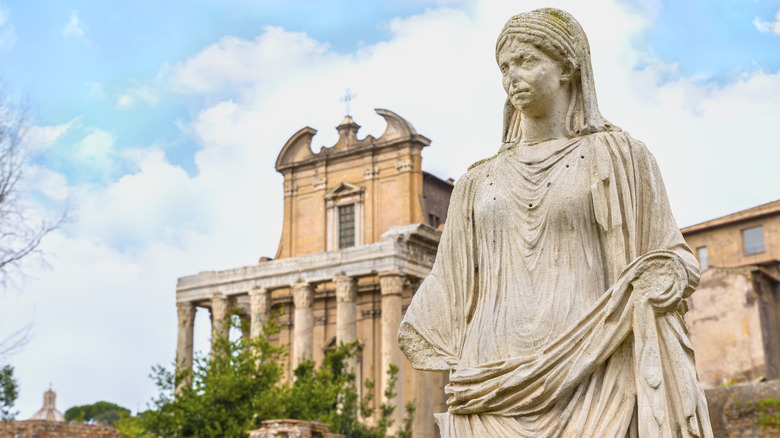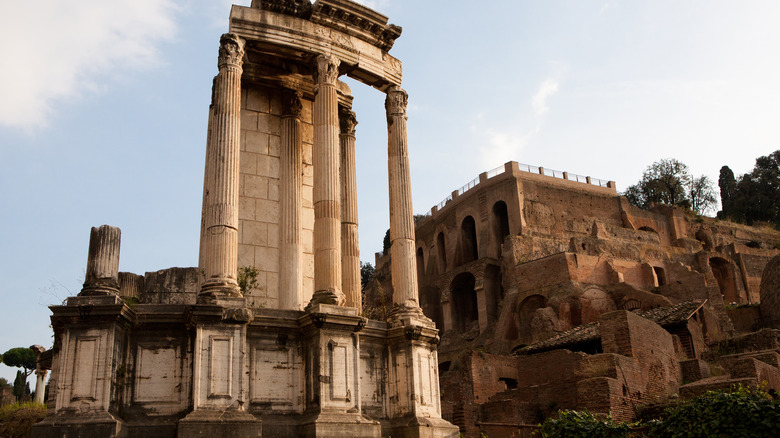
Vasilii L/Shutterstock
Ancient Rome, in a lot of ways, was a highly advanced society. Innovations such as their sewage systems and aqueducts, per ThoughtCo, allowed them to transport potable water great distances, and the first of Rome's aqueducts is believed to have been built as far back as the fourth century B.C.
Their road system, too, was and remains an engineering marvel. According to World History Encyclopedia, the Romans built their famous highways as straight as possible, and the legendary Appian Way, the first, is just short of 125 miles long. It was known as Regina viarum, (queen of roads).
Despite its many achievements, though, Roman society tended to fail women. As per History Extra, the freeborn women of Rome lacked access to education, and they couldn't hold political positions or even vote. The Vestal Virgins, by contrast, had tremendous power and influence within Roman society. Here's why this sacred group of women was so very, very important, and the surprising amount of power they wielded as a result.
Per World History, Vestal Virgins served Vesta, the goddess of the hearth. They were selected when they were around 6 to 10 years old and would leave their families to live with their peers, as Rome's only clergy members to serve full-time. They had a range of duties, especially on feast days, but the most crucial one was keeping the sacred fire in the Roman Forum's Shrine of Vesta lit.
With great responsibility comes great power

Birute Vijeikiene/Shutterstock
As Vesta herself was revered, so too were the Vestal Virgins. This elite group, writes historical author Suzanne Tyrpak (per Suzanne Dair), numbered only six at a time, one of whom was the Vestal Maxima, the leader. They tended to be selected from well-to-do Roman families, but they had rights far beyond even the wealthiest women of Rome.
They were not beholden to male relatives, Tyrpak explains, were given generous wages, and were not forbidden to own property. They were well educated and cared for numerous vital documents, some of which they wrote themselves. Politically and socially, they could be considered to outrank almost everyone else, and were all but worshipped themselves by those who desired their favor. They even dealt regularly with the Emperor himself, advising him as members of the Collegiate of Pontiffs.
Their lives were certainly subject to harsh restrictions (forsaking their vow of chastity resulted in no less a punishment than burial alive, per Britannica), and their commitment included three decades of expected service. However, in return, they wielded a power that women across the Roman Empire could generally only dream of.